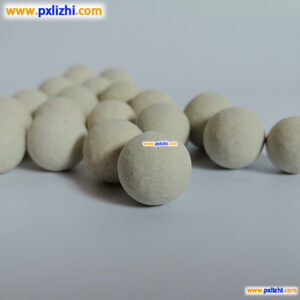
# Ceramic Ball Applications in Industrial Processes
## Introduction to Ceramic Balls
Ceramic balls are highly versatile components used across various industrial sectors. Their unique properties make them ideal for applications where durability, heat resistance, and chemical inertness are required. These small spherical objects are manufactured from advanced ceramic materials, offering superior performance compared to traditional metal balls in many scenarios.
## Key Properties of Ceramic Balls
The widespread use of ceramic balls in industrial processes stems from their exceptional characteristics:
- Extreme hardness and wear resistance
- Excellent thermal stability
- Corrosion resistance to most chemicals
- Electrical insulation properties
- Lightweight compared to metal alternatives
## Major Industrial Applications
1. Bearing Systems
Ceramic balls have revolutionized bearing technology, particularly in high-speed and high-temperature applications. Hybrid bearings combining ceramic balls with steel races offer:
- Reduced friction and heat generation
- Extended service life
- Improved performance in corrosive environments
- Lower maintenance requirements
2. Grinding and Milling
In the mineral processing and paint industries, ceramic balls serve as grinding media in ball mills. Their advantages include:
- Higher density than steel balls for more efficient grinding
- Minimal contamination of processed materials
- Resistance to abrasion and impact
- Lower energy consumption per ton of processed material
Keyword: ceramic ball
3. Valve Components
The chemical and petrochemical industries extensively use ceramic balls in valve applications due to their:
- Ability to withstand aggressive media
- Excellent sealing properties
- Long service life in high-pressure systems
- Reduced maintenance downtime
4. Automotive Applications
Modern vehicles incorporate ceramic balls in various systems:
- Turbocharger bearings for reduced lag and improved efficiency
- Fuel injection systems for precise metering
- Transmission components for smoother operation
- Exhaust systems handling high temperatures
## Emerging Applications
Recent technological advancements have opened new possibilities for ceramic ball applications:
- Medical devices and implants
- Aerospace components
- Semiconductor manufacturing equipment
- Renewable energy systems
## Conclusion
Ceramic balls continue to transform industrial processes across multiple sectors. As material science advances, we can expect even broader adoption of these components in demanding applications where performance, reliability, and efficiency are paramount. Their unique combination of properties makes them indispensable in modern industrial operations.
